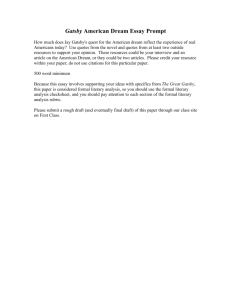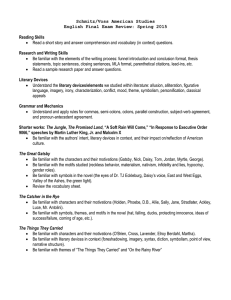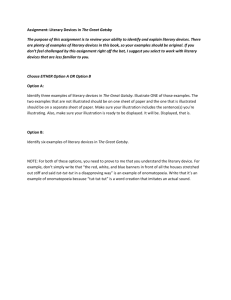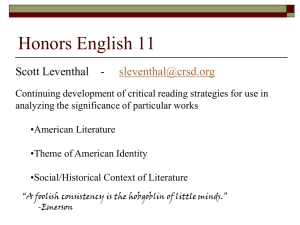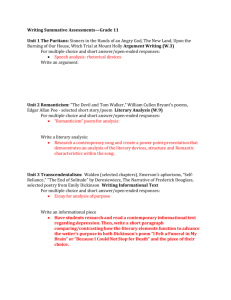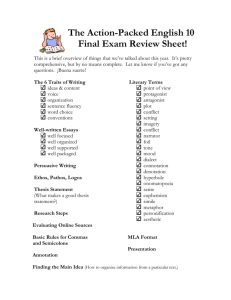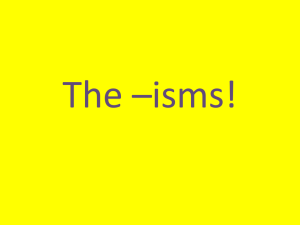Final Exam Review: Honors American Literature Your final exam will
advertisement
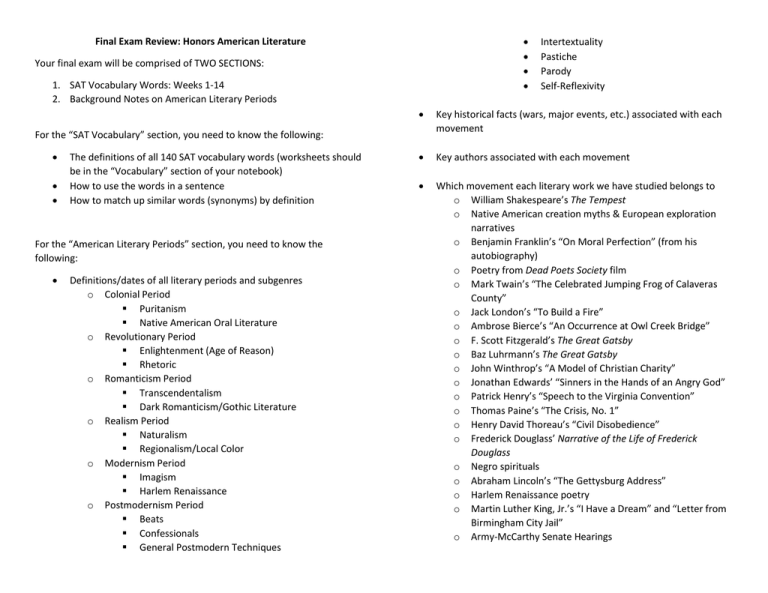
Final Exam Review: Honors American Literature Your final exam will be comprised of TWO SECTIONS: 1. SAT Vocabulary Words: Weeks 1-14 2. Background Notes on American Literary Periods Key historical facts (wars, major events, etc.) associated with each movement Key authors associated with each movement Which movement each literary work we have studied belongs to o William Shakespeare’s The Tempest o Native American creation myths & European exploration narratives o Benjamin Franklin’s “On Moral Perfection” (from his autobiography) o Poetry from Dead Poets Society film o Mark Twain’s “The Celebrated Jumping Frog of Calaveras County” o Jack London’s “To Build a Fire” o Ambrose Bierce’s “An Occurrence at Owl Creek Bridge” o F. Scott Fitzgerald’s The Great Gatsby o Baz Luhrmann’s The Great Gatsby o John Winthrop’s “A Model of Christian Charity” o Jonathan Edwards’ “Sinners in the Hands of an Angry God” o Patrick Henry’s “Speech to the Virginia Convention” o Thomas Paine’s “The Crisis, No. 1” o Henry David Thoreau’s “Civil Disobedience” o Frederick Douglass’ Narrative of the Life of Frederick Douglass o Negro spirituals o Abraham Lincoln’s “The Gettysburg Address” o Harlem Renaissance poetry o Martin Luther King, Jr.’s “I Have a Dream” and “Letter from Birmingham City Jail” o Army-McCarthy Senate Hearings For the “SAT Vocabulary” section, you need to know the following: The definitions of all 140 SAT vocabulary words (worksheets should be in the “Vocabulary” section of your notebook) How to use the words in a sentence How to match up similar words (synonyms) by definition For the “American Literary Periods” section, you need to know the following: Definitions/dates of all literary periods and subgenres o Colonial Period Puritanism Native American Oral Literature o Revolutionary Period Enlightenment (Age of Reason) Rhetoric o Romanticism Period Transcendentalism Dark Romanticism/Gothic Literature o Realism Period Naturalism Regionalism/Local Color o Modernism Period Imagism Harlem Renaissance o Postmodernism Period Beats Confessionals General Postmodern Techniques Intertextuality Pastiche Parody Self-Reflexivity

